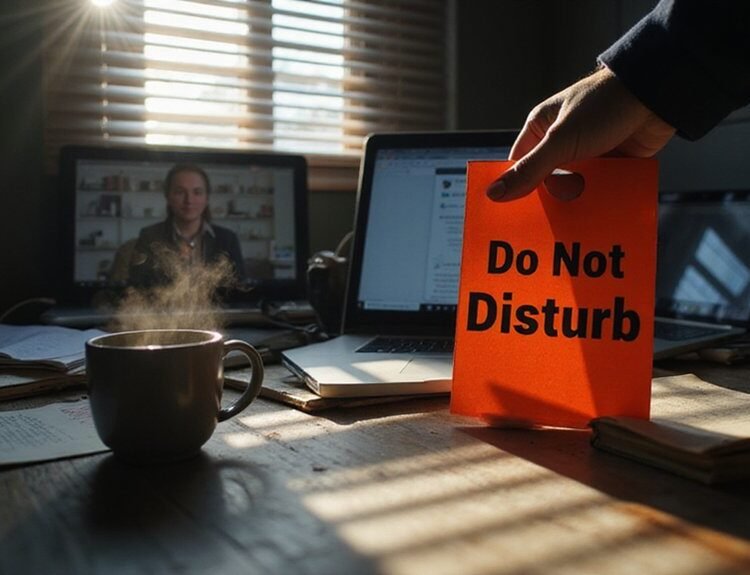Like weary travelers seeking refuge from a restless night, you’re likely searching for a reliable sleep solution. When insomnia disrupts your nightly rhythm, two promising alternatives emerge: melatonin and CBD. Both compounds offer potential relief, but their mechanisms and safety profiles differ markedly. You’ll want to understand how these natural sleep aids compare, especially regarding their effectiveness and potential side effects. Are you ready to explore which option might best restore your peaceful slumber?
Key Takeaways
- CBD and melatonin are both considered safe sleep aids, with minimal side effects and low risk of addiction or dependency.
- Melatonin directly regulates sleep-wake cycles by mimicking the body’s natural hormone, while CBD addresses underlying anxiety and stress disrupting sleep patterns.
- CBD demonstrates higher efficacy for anxiety-related insomnia, with approximately 80% of clinical study participants experiencing reduced anxiety and improved sleep quality.
- Melatonin has a more targeted approach for circadian rhythm disorders, typically reducing sleep onset by seven minutes with recommended dosages between 0.5-5 mg.
- Combining CBD and melatonin may provide synergistic benefits, but professional medical consultation is crucial to determine individual safety and optimal dosage for specific sleep challenges.
What Is Melatonin?
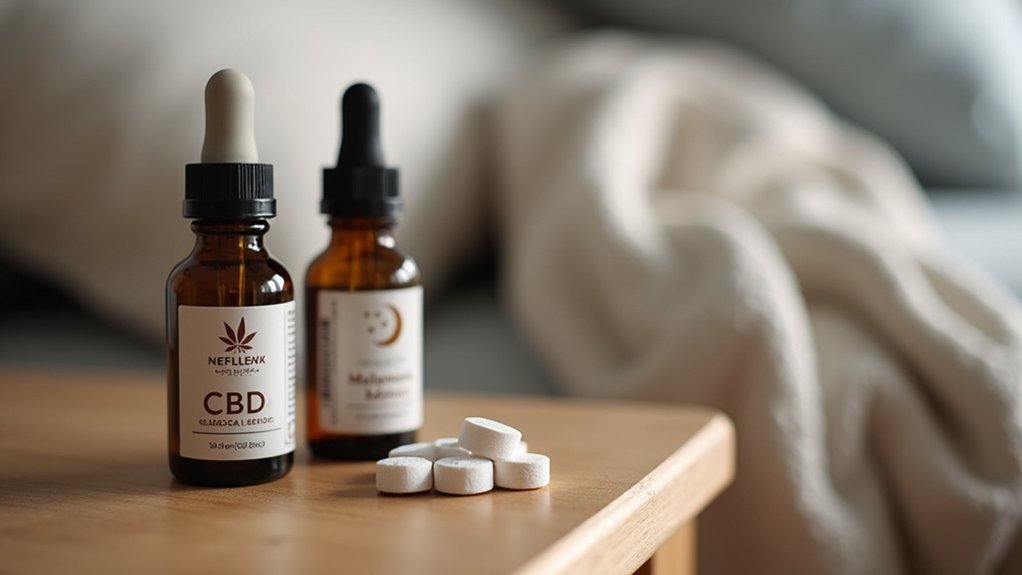
When darkness falls, a tiny but powerful hormone springs into action. Melatonin, produced by your pineal gland, signals your body that it’s time to sleep, regulating your circadian rhythm. Its production peaks around 2 a.m. and naturally decreases with light exposure, especially blue light from screens.
If you’re struggling with sleep disorders, melatonin supplementation might offer relief. It can help you fall asleep faster by mimicking your body’s natural hormone. However, you’ll want to approach its use cautiously. Short-term supplementation is generally considered safe, but long-term effects remain unclear. Be aware of potential side effects like headaches, dizziness, and daytime drowsiness. Always consult a healthcare provider before starting any new supplement to ascertain it’s a safe, appropriate natural alternative for your sleep challenges.
What Is CBD?
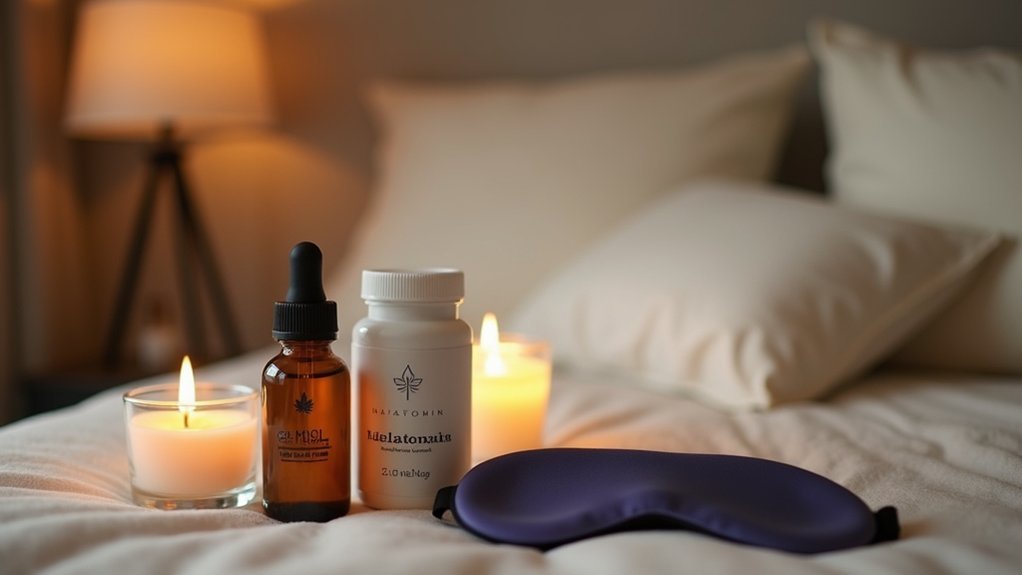
The hemp plant harbors a remarkable compound known as cannabidiol, or CBD, a non-psychoactive cannabinoid that’s gaining significant attention in medical and wellness circles. As a natural remedy for sleep disturbances, CBD interacts with your body’s endocannabinoid system to potentially improve sleep quality and alleviate anxiety-related insomnia.
CBD offers a natural solution for sleep challenges, harmonizing with your body’s endocannabinoid system to promote restful nights.
Key characteristics of CBD include:
- A hemp-derived compound that doesn’t produce psychoactive effects
- Demonstrated potential in reducing anxiety and promoting relaxation
- Considered safe for daily use with minimal side effects
Research suggests CBD offers a promising alternative to synthetic sleep medications, addressing underlying issues like anxiety and pain that can disrupt your sleep. Unlike melatonin, CBD provides a thorough approach to managing sleep challenges without risk of addiction or significant adverse reactions.
How Melatonin Supports Sleep
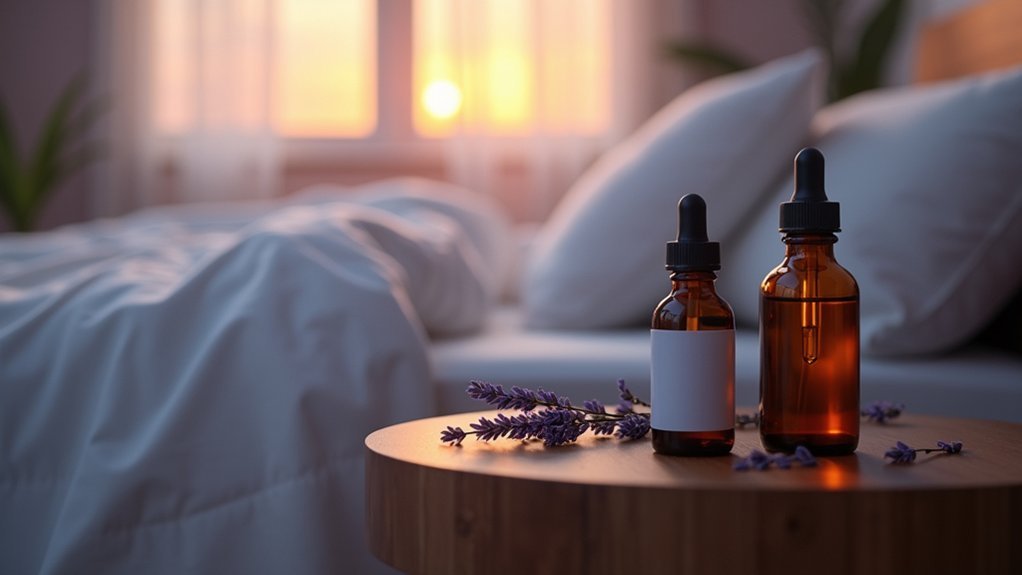
Circadian rhythms dance to melatonin’s subtle orchestration, guiding your body’s intricate sleep-wake cycle through hormonal signaling. As a natural hormone produced by the pineal gland, melatonin directly influences your sleep quality by responding to darkness and preparing your body for rest. When natural production declines—often due to light exposure from screens—melatonin supplements can help address sleep issues effectively.
Research indicates that melatonin supplements can reduce sleep onset by approximately seven minutes, particularly beneficial for individuals experiencing jet lag or delayed sleep phase syndrome. While generally safe for short-term use, effectiveness varies based on individual melatonin deficiency. Understanding your specific sleep challenges is essential, as supplements might not resolve sleep problems stemming from pain or anxiety. Consulting healthcare professionals can help determine the most appropriate intervention for your unique sleep needs.
How CBD Supports Sleep
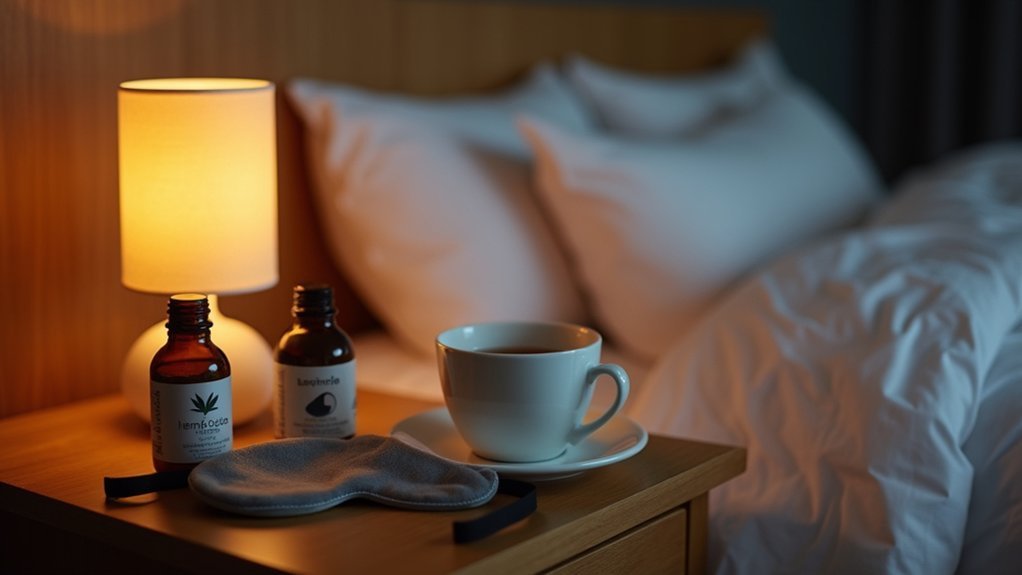
Sleep’s elusive nature finds a potential ally in cannabidiol (CBD), a compound that interacts dynamically with the body’s endocannabinoid system. Evidence suggests CBD products can help reduce sleep disturbance by addressing underlying anxiety and discomfort.
- CBD may improve sleep quality by targeting stress factors that interfere with natural melatonin production
- Clinical studies reveal nearly 80% of participants experienced reduced anxiety after CBD use
- Unlike melatonin supplementation, CBD addresses secondary issues like chronic pain that disrupt sleep patterns
High doses of CBD can potentially alleviate anxiety-related sleep challenges, offering a complementary approach to traditional sleep aids. By targeting the root causes of insomnia, CBD provides a nuanced mechanism for supporting restful sleep, making it an increasingly promising option for individuals struggling with persistent sleep interruptions.
Potential Side Effects of Melatonin

While CBD offers promising sleep support, understanding melatonin’s potential drawbacks becomes vital for individuals seeking effective sleep solutions. Melatonin use can trigger short-term side effects including headache, nausea, dizziness, and daytime drowsiness, which vary across individual circumstances. High doses may interfere with natural hormone production, potentially disrupting your body’s innate sleep-wake cycle. It’s essential to recognize that melatonin’s effectiveness isn’t guaranteed and can depend greatly on underlying health conditions.
Before initiating supplementation, you’ll want to consult a healthcare provider, especially if you’re taking medications like SSRIs or blood pressure treatments that might interact adversely. While considered safe for short-term use, conclusive long-term effects remain uncertain. Careful, measured approach and professional guidance can help mitigate potential risks associated with melatonin consumption.
Potential Side Effects of CBD
Though CBD has gained popularity as a potential sleep aid, understanding its potential side effects remains vital for informed use. Research indicates that CBD’s safety and effects are generally favorable, with a low incidence of adverse reactions.
Key potential side effects include:
- Mild and manageable symptoms like dry mouth, diarrhea, and reduced appetite
- Possible drowsiness and fatigue that may impact daily functioning
- Potential interactions with other medications
When considering CBD for long-term use, it’s important to start with a low dosage and gradually assess individual tolerance. Consulting a healthcare professional is recommended to prevent adverse interactions and guarantee safe consumption. Only 12% of participants in clinical studies reported side effects, with none classified as severe, suggesting CBD’s relatively safe profile for sleep support.
Safety Profile of Melatonin
When evaluating melatonin’s safety profile, medical research suggests it’s a well-tolerated supplement with minimal adverse reactions. Short-term use typically presents few side effects, including mild headaches, nausea, dizziness, and daytime drowsiness. While long-term safety data remains limited, melatonin hasn’t been linked to withdrawal effects, distinguishing it from other sleep medications.
Dosage management is essential for maintaining natural melatonin production. Most individuals benefit from 0.5 to 5 mg doses, with healthcare providers recommending against prolonged high-dose consumption. Before incorporating melatonin for sleep issues like insomnia, consult your medical professional, particularly if you’re taking medications that might interact, such as SSRIs or benzodiazepines. This approach guarantees safe, targeted supplementation tailored to your specific sleep needs.
Safety Profile of CBD
As medical researchers continue exploring natural sleep aids, cannabidiol (CBD) emerges as a promising alternative with a distinct safety profile. Its clinical evaluation reveals encouraging characteristics for those seeking a non-addictive sleep support option.
Key safety insights include:
CBD demonstrates remarkable safety, with minimal side effects and promising potential for sleep support.
- Only 12% of study participants reported side effects, none of which were severe
- CBD is well tolerated and legal in the U.S., allowing for daily use without controlled substance screening
- Potential minor side effects include dry mouth, drowsiness, and fatigue, particularly when initiating higher doses
While ongoing research continues to investigate long-term safety, current evidence suggests CBD offers a favorable alternative to traditional sleep medications. Its non-addictive nature and minimal side effect profile make it an attractive option for individuals seeking to improve sleep quality through chronic use, with researchers maintaining cautious optimism about its potential therapeutic applications.
Combining Melatonin and CBD
Despite the growing interest in natural sleep aids, the potential synergy between melatonin and CBD represents a promising frontier in sleep management. When combining melatonin and CBD, you can potentially improve sleep quality by targeting different aspects of sleep challenges. Melatonin supplements help regulate circadian rhythms, while the effects of CBD can reduce anxiety scores and alleviate stress-related disturbances.
The safety comparison suggests starting with small doses to assess individual reactions. Research indicates that these synergistic effects might enhance sleep satisfaction, with CBD potentially amplifying melatonin’s effectiveness. However, it’s important to consult a healthcare professional before integrating these supplements to guarantee they’ll help you sleep safely and effectively, considering your unique health needs and potential medication interactions.
Choosing the Right Sleep Aid for You
How do you determine the most effective sleep aid for your specific needs? Identifying the right solution for trouble sleeping requires a nuanced approach based on your unique symptoms and underlying conditions. Sleep aids like melatonin and CBD offer targeted benefits depending on your specific sleep challenges.
Personalized sleep solutions rely on understanding individual symptoms and selecting targeted aids like melatonin or CBD.
- If you’re experiencing circadian rhythm disorders, melatonin might be your best choice
- CBD could be more effective if anxiety disrupts your sleep patterns
- Consulting a healthcare professional guarantees a safety comparison tailored to your medical history
When improving sleep quality, consider these factors: underlying causes of sleep disruption, potential interactions with existing medications, and individual physiological responses. Medical advice becomes vital in determining whether combining CBD and melatonin might provide thorough relief from sleep difficulties.
Frequently Asked Questions
Is It Better to Take Melatonin or CBD for Sleep?
You’ll want to choose based on your specific sleep issues: melatonin works best for circadian rhythm disruptions, while CBD targets anxiety-related insomnia. Consult a healthcare professional to determine the most effective, personalized natural remedy with minimal side effects.
What Is Better for Sleep, Magnesium or CBD?
You’ll find magnesium promotes relaxation and CBD alleviates anxiety-driven sleep disruptions. While both natural remedies support sleep quality, CBD might edge out for insomnia, but individual responses vary—consulting a healthcare provider guarantees personalized, safe supplementation.
Is CBD or CBC Better for Sleep?
Based on current research, you’ll find CBD more effective for sleep quality, with more robust studies supporting its benefits. While CBC shows promise, CBD’s established track record and proven dosing guidelines make it the superior natural remedy for sleep disorders.
Conclusion
When seeking a sleep solution, you’ll find both CBD and melatonin offer promising alternatives. Research indicates that approximately 30% of adults struggle with sleep disorders, making these supplements increasingly relevant. While each has unique benefits, consulting a healthcare professional remains essential. Your individual sleep patterns, underlying health conditions, and potential interactions will determine the most appropriate choice for restful, quality sleep.



